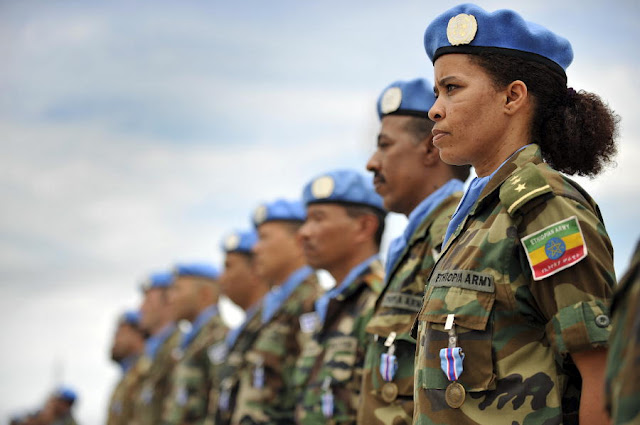-
No Peace Without Women
November 11, 2010 By Kayly Ober
On October 31, 2000, the UN Security Council adopted Resolution 1325, which calls for women’s equal participation in all efforts to maintain and promote peace and security. The resolution sought to exorcise the demons of the 1990s, when genocide took over 800,000 lives in Rwanda, thousands of women were raped in Bosnia, and millions more were displaced. However, the truth is that little progress has been made over these last 10 years and women remain on the periphery when it comes to post-conflict reconstruction and development.
A new report from the humanitarian organization CARE concedes that “much of the action remains declarative rather than operational.”
According to the report, “From Resolution to Reality: Lessons learned from Afghanistan, Nepal and Uganda on women’s participation in peacebuilding and post-conflict governance,” despite small gains in female representation in the peace processes in Afghanistan, Uganda, and Nepal, SCR 1325 has had limited success because:
- Participation is often superficial and events-based, rather than feeding into the nuts-and-bolts of designing peace operations and mediation efforts;
- Efforts to empower women at the decision-making level have traditionally targeted urban elites, creating a national-local divide, which marginalizes rural women;
- Participation is limited by short-term funding, which often focuses on basic life-saving assistance. Long-term funding tends to emphasize state-building through multi-donor trust funds and general budgetary support instead of more impactful grassroots projects;
- An increased risk of violence against women in conflict-afflicted zones severely impedes women’s mobility and ability to participate;
- National leadership lags because political leaders often lack the resources, capabilities, and/or political will to commit to pro-women policies. Cultural resistance to women’s rights among large segments of the population also weighs heavily on political calculations.
A Woman’s Worth
Although women’s participation at the local level lags, the UN has been particularly cognizant of the way SCR 1325 plays into its peacekeeping operations. In 2009, the UN launched an initiative to increase women’s participation in peacekeeping operations to 20 percent by 2014.
According to The New York Times, women peacekeepers “employ distinctive social skills in a rugged macho domain. They are…counted on to bring calm to the streets and the barracks, acting as public servants instead of invaders.”
Women peacekeepers also often provide a safe haven for victims of gender-based violence to turn to and they participate in more development-based projects like separating bathroom facilities for boys and girls in schools, and organizing baking courses to support women’s incorporation in the labor market.
Setting Sights
While small steps have been made internationally, we need to set our sights at the local, grassroots level. Indeed, more funding for long-term, integrated, multi-sectoral strategies to embed women’s participation and peacebuilding into wider, community-based transitional programs is essential.
With integration in mind, perhaps improved attention to gender in peacekeeping operations will go hand-in-hand with increased attention to natural resource management issues, which Ban Ki-moon pushed the Security Council for this summer. Such a broadening of the UN’s peacekeeping envelope could pay dividends in places like the Democratic Republic of the Congo, where the UN’s largest peacekeeping operation ever has faced increasing criticism for repeatedly failing to protect women from rape in the eastern provinces and also failing to account for the valuable minerals that support the rebels.
Women are often not allowed the space or time to participate in decision-making, but providing access to basic education, health services, and economic opportunity helps widen avenues towards meaningful participation in community and national affairs as well as empowers women to engage in a more holistic way.
As CARE eloquently confirms, “without multi-sectoral and holistic approaches, women acquire neither the means, nor the confidence, nor the necessary community acceptance to voice their concerns and input to the peace process.”
Sources: CARE, IPS News, Guardian, The New York Times, UN.
Image Credit: “A female member of the Ethiopian battalion of the United Nations Mission in Liberia (UNMIL) joins the military observers in a parade to receive the medals in recognition of their contribution to the mission,” courtesy of flickr user United Nations Photo.
 A Publication of the Stimson Center.
A Publication of the Stimson Center.




